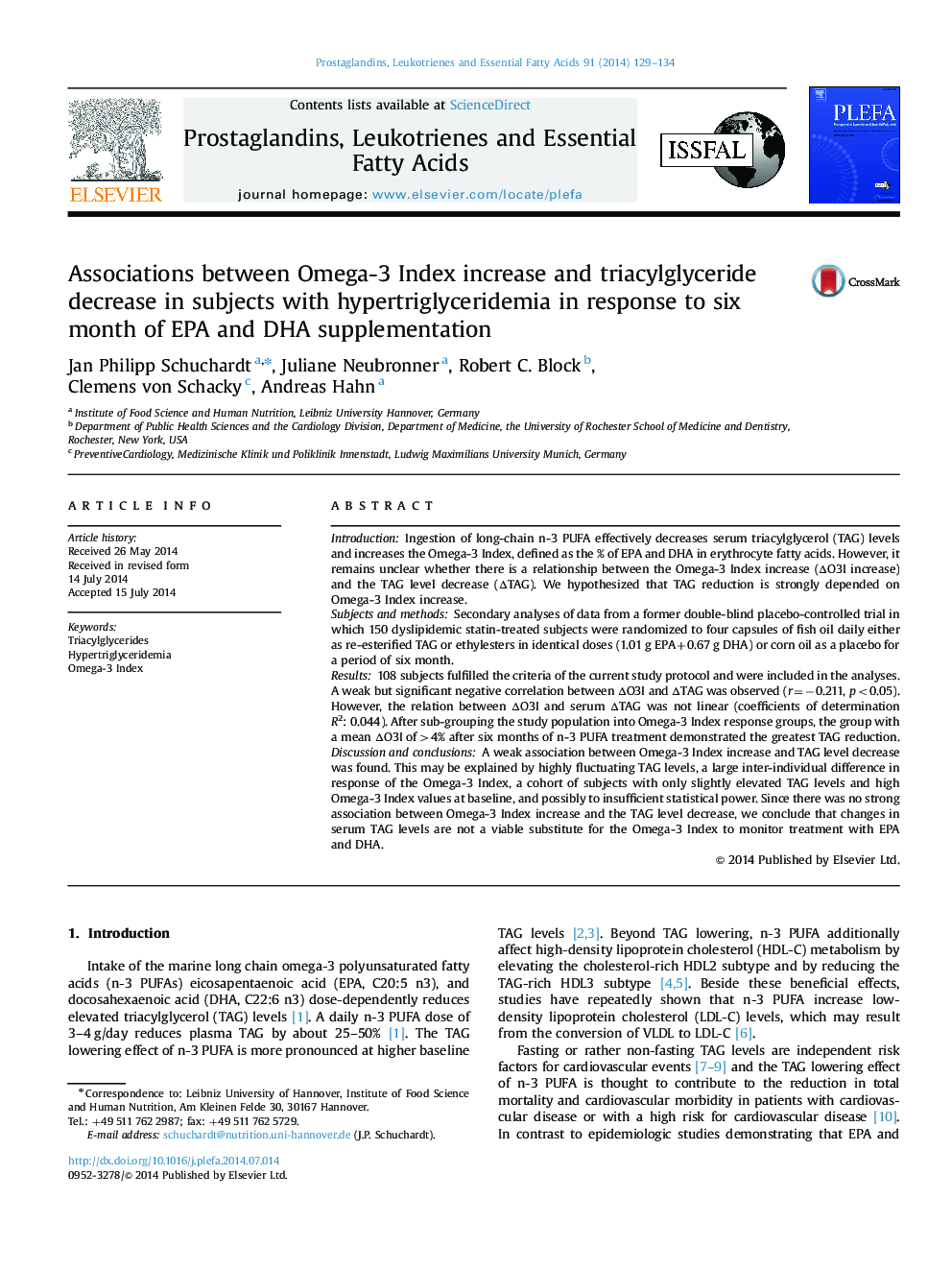| کد مقاله | کد نشریه | سال انتشار | مقاله انگلیسی | نسخه تمام متن |
|---|---|---|---|---|
| 2777570 | 1152737 | 2014 | 6 صفحه PDF | دانلود رایگان |

IntroductionIngestion of long-chain n-3 PUFA effectively decreases serum triacylglycerol (TAG) levels and increases the Omega-3 Index, defined as the % of EPA and DHA in erythrocyte fatty acids. However, it remains unclear whether there is a relationship between the Omega-3 Index increase (ΔO3I increase) and the TAG level decrease (ΔTAG). We hypothesized that TAG reduction is strongly depended on Omega-3 Index increase.Subjects and methodsSecondary analyses of data from a former double-blind placebo-controlled trial in which 150 dyslipidemic statin-treated subjects were randomized to four capsules of fish oil daily either as re-esterified TAG or ethylesters in identical doses (1.01 g EPA+0.67 g DHA) or corn oil as a placebo for a period of six month.Results108 subjects fulfilled the criteria of the current study protocol and were included in the analyses. A weak but significant negative correlation between ΔO3I and ΔTAG was observed (r=−0.211, p<0.05). However, the relation between ΔO3I and serum ΔTAG was not linear (coefficients of determination R2: 0.044). After sub-grouping the study population into Omega-3 Index response groups, the group with a mean ΔO3I of>4% after six months of n-3 PUFA treatment demonstrated the greatest TAG reduction.Discussion and conclusionsA weak association between Omega-3 Index increase and TAG level decrease was found. This may be explained by highly fluctuating TAG levels, a large inter-individual difference in response of the Omega-3 Index, a cohort of subjects with only slightly elevated TAG levels and high Omega-3 Index values at baseline, and possibly to insufficient statistical power. Since there was no strong association between Omega-3 Index increase and the TAG level decrease, we conclude that changes in serum TAG levels are not a viable substitute for the Omega-3 Index to monitor treatment with EPA and DHA.
Journal: Prostaglandins, Leukotrienes and Essential Fatty Acids (PLEFA) - Volume 91, Issue 4, October 2014, Pages 129–134